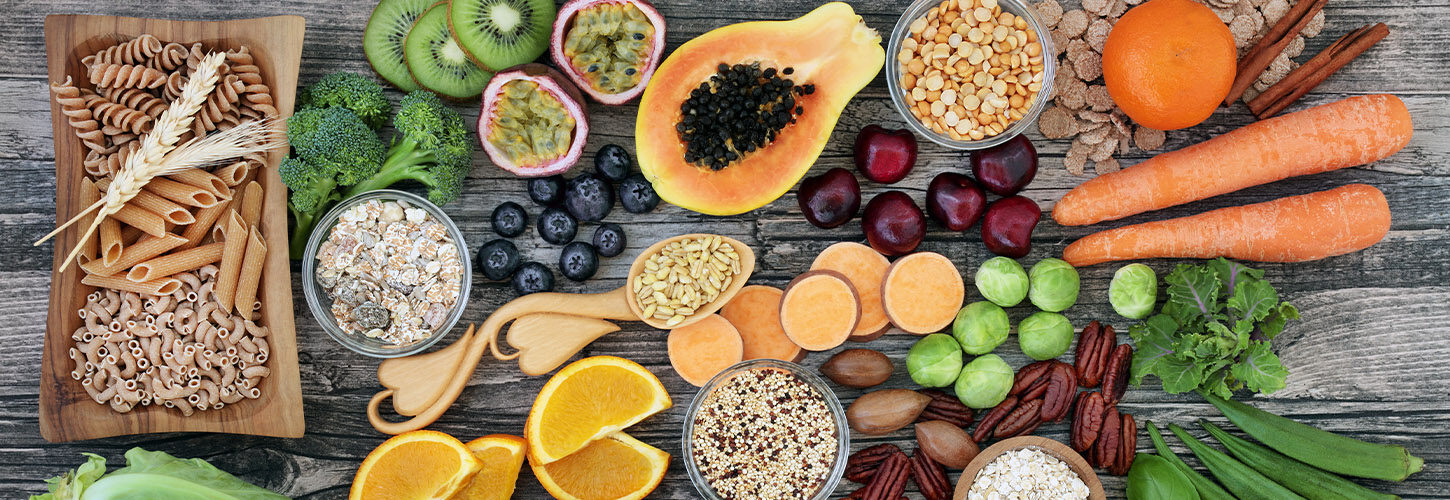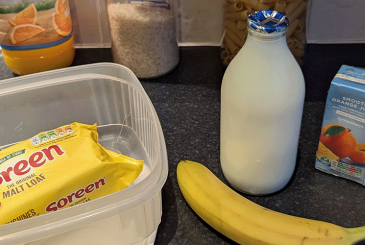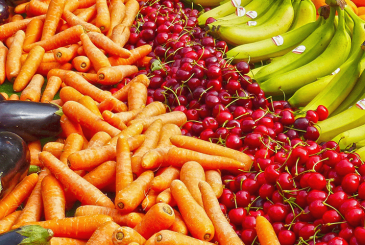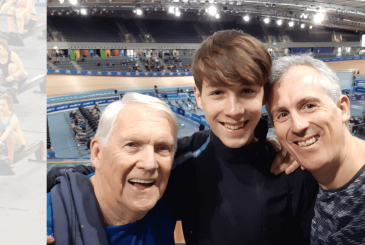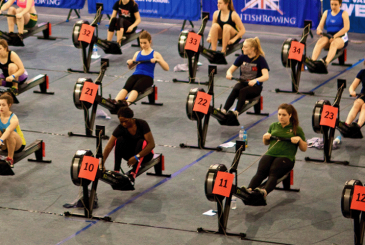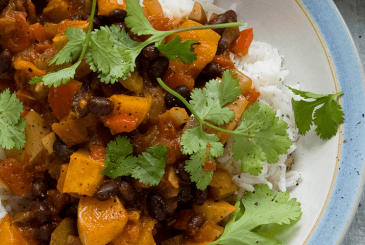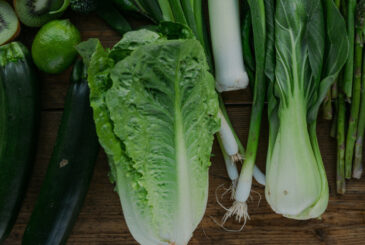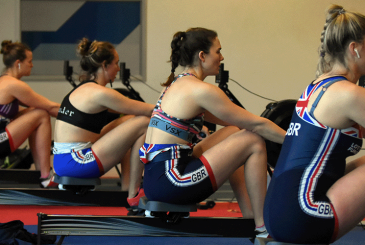Maximising your speed requires explosiveness, power and a block of high-intensity training. When aiming for a 2km PB, having a strong start and maintaining that effort for the duration of the distance is essential. This article looks at how to adequately fuel a high-intensity training session as well as what to eat to increase your power.
Fuelling High-Intensity Training
During an all-out, high-intensity training session, almost all of your energy comes from carbohydrates. Carbohydrate is stored in the muscles and liver as glycogen and some is converted to glucose which circulates in the blood stream. During high-intensity exercise, muscle glycogen stores and blood glucose are the primary energy source. If you don’t fuel properly, glycogen stores could become depleted too early leaving you feeling fatigued and unable to complete training sessions at the appropriate intensity.
But how much carbohydrates should you consume before training and is it necessary to carb-load? Although it isn’t necessary to carb-load like a marathon runner would, you should pay particular attention to what you consume in the 3-4 hours leading up to high- intensity exercise. Within this time frame, aim to consume 1-4g of carbohydrate per kilogram of body mass (i.e. 1-4g/kg). For example, this would equate to consuming 70-280g of carbohydrate for a 70kg athlete. Before high-intensity training, the lower end of this range (~1-2g/kg of carbohydrate which is 70-140g of carbohydrate for a 70kg athlete) should be sufficient.
Start the fuelling process by eating a pre-exercise meal (3-4 hours before the session) containing lower glycaemic index carbohydrates which provide energy over a longer period of time and are typically found in foods such as porridge oats, sweet potato and wholemeal rice. About 30-60 minutes before exercise, you could top up with a pre-exercise snack containing carbohydrate if you feel you need it. In general, try to avoid high-fat foods before exercise; these take longer to digest and could cause gastrointestinal problems during exercise.
Pre-Exercise Meals Containing ~70g Carbohydrate
| Meal | Portion size |
|---|---|
| Porridge topped with sliced banana | 70g oats with 200ml of milk & 1 small banana |
| Jacket sweet potato with tuna and sweetcorn | 1 large jacket potato, 1 tin of tuna, 4 heaped tbsp. sweetcorn & 1 tsp. light mayonnaise |
| Chicken salad wraps | 2 large wholemeal wraps, 1 chicken breast, ½ pepper |
| Tofu stir-fry | 70g basmati rice, ¼ block of tofu. 1tsp. honey, 1 tbsp. soy sauce, 2 large handful of vegetables |
Pre-Exercise Snacks Containing ~30g Carbohydrate
| Snack | Portion size |
|---|---|
| Banana | 1 large banana |
| Malt loaf | 2 x 30g slices |
| Peanut butter & jam on toast | 1 slice of wholemeal toast, 1tsp. peanut butter & 1tsp. jam |
| Scotch pancakes | 2 scotch pancakes |
The timing, composition and quantity of food tolerated before exercise is very individualised. Spend some time testing different combinations of foods and changing the timing of meals and snacks to find out what helps you perform at your best during training.
Generating Power
A fast 2km erg also requires the first couple of strokes to be powerful and efficient. To develop power and strength, you need to overload the muscle fibres through resistance exercise. When resistance exercise is performed alongside appropriate nutrition is consumed, muscle protein synthesis is stimulated leading to an increase in strength and muscle adaptations. This means it is important to consider what you eat in the twenty-four hours post exercise.
Protein is the one of the most important macronutrients to focus on after completing resistance exercise. Within an hour of finishing exercise, aim to have a snack or meal containing at least 20-40g of high-quality protein. Having protein-based snacks, such as beef jerky or UHT flavoured milk, already in your gym bag means you can start the recovery process immediately after exercise. Well-balanced recovery meals should include at least 20g protein, carbohydrates to replenish energy stores and plenty of vegetables/fruit to support the immune system.
Good Sources of Protein
| Food | Portion Size | Protein content (g) |
|---|---|---|
| Milk | 1 pint | 20 |
| Strained greek yoghurt | 125g | 15 |
| Eggs | 2 medium eggs | 15 |
| Chicken | 1 medium breast (95g) | 30 |
| Tuna | 1 small tin (100g) | 20 |
| Chickpeas | 1/2 large can | 10 |
| Lentils | 1/2 large can | 10 |
Conclusion
Maximising speed requires exposure to high-intensity training and resistance-exercise to develop both speed and strength. Avoid performing high-intensity exercise on an empty stomach. Instead fuel appropriately by eating carbohydrate-based meals or snacks in the three to four hours leading up to training. Following resistance exercise, recover well by having a high-quality protein-based meal or snack. Not only will this help you recover, but it will also optimise muscle adaptations.
Photo: marilyn barbone/Shutterstock.com


